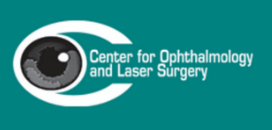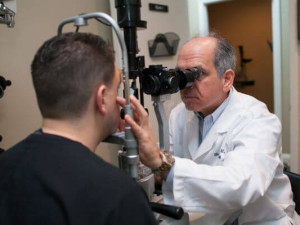
When it comes to allergies, most people think of the most visible symptoms: sneezing, coughing, and looking panicked whenever they see a dusting of pollen on their cars. However, allergies aren’t just limited to your nose; allergies can also have a massive impact on your eyes. From itchiness and eye irritability to redness and swelling, there is a host of symptoms that indicates your eyes are currently in the midst of an allergy.
Eye allergies – which ophthalmologists refer to as “allergic conjunctivitis” – are caused by the immune system, which mistakenly thinks that pollen, dust, and other allergens are harmful. When the immune system attacks these otherwise-harmless irritants, it releases a chemical known as histamine. This is responsible for the telltale swelling and itching you experience in the midst of an allergy attack.
While suffering from eye allergies certainly isn’t enjoyable, it can help many individuals pinpoint the cause of their eye health problems. If you’ve encountered one or more of the following symptoms, you may need to schedule an appointment with an ophthalmologist for eye allergy testing:
- Red, irritated eyes
- Itchiness or eye irritability
- A sense that something’s always “in your eyes”
- Tearing or running eyes
- Soreness
- Burning eyes
- Swollen eyes (particularly the eyelids)
- Sensitivity to light
While many of these symptoms are typically combined with a running nose or sneezing, that isn’t always the case. This is why many ophthalmologists encounter patients with ocular symptoms of their allergies; they’re unaware that their eye problems can be attributed to an allergy of some kind.
During your appointment with an ophthalmologist, he or she will conduct a variety of allergy tests to determine what you’re allergic to. Allergy testing will start with the most common allergens, which can include the following:
- Pollen, which is usually from trees, weeds, and even grass. This is a common allergen that most people are allergic to; fortunately, these allergies are typically seasonal.
- Pet dander
- Dust
- Chemicals in make-up and perfume; and
- Indoor allergens.
Depending on what you’re allergic to, a variety of treatments can help minimize your allergic symptoms. Prescription antihistamine eye drops can provide short-term relief, while steroid eye drops can provide long-lasting relief. These eye drops should be recommended or prescribed by an ophthalmologist.
In order to effectively treat eye allergies, it’s important to schedule regular eye exams with your ophthalmologist. At the Center for Ophthalmology and Laser Surgery – serving the greater Fort Lauderdale, FL and surrounding Florida areas – Dr. Loeffler and his staff members are dedicated to protecting your ocular health against the symptoms of eye allergies. Schedule an appointment with Dr. Loeffler today to learn more about eye allergies and your treatment options. (954) 786-5353




